Generally considered one of the healthiest diets on the planet, the Mediterranean diet can do miracles for your general health and just as crucial for the health of your skin.
Strange then that today we still don’t take this knowledge on board, and include some of these ancient Mediterranean foods directly and easily into our own diets to boost our overall health, in body and skin.
Mediterranean Diet For Health Benefits And Maintaining Healthy Skin:
A favorite of health professionals, its benefits are backed by a considerable amount of scientific research. Studies have shown that by adhering to the Mediterranean Diet for health benefits and maintaining healthy skin you can lower blood pressure, cholesterol levels, reduce the risk of various diseases, keeps bones strong and healthy, protects the brain and memory, and gives you healthy radiant looking skin.
There is more than good genes, myth and magic lying behind the generally healthy and cared for skin you see among Mediterranean people. They use make-up and skincare products in abundance just like the rest of us. But, they have some excellent skin building blocks in place in the form of great food; the so-called traditional Mediterranean diet.
Your diet can have both a positive and negative effect on the condition of your skin, your body’s largest organ, and the benefits of these ingredients for both the body and beauty.
Your skin will be at its healthiest providing you are getting the nutrients it requires from the food you eat, it is what you eat that plays a significant part in how your skin looks, feels and importantly shields you from daily pollutants.
Also, a recent study published in the ‘British Journal of Nutrition’ advises that following the Mediterranean diet can increase your life expectancy, even for people aged 65 and older.
Read – Help For Sensitive Skin – Your Diet Can Make A Difference!
The Mediterranean Diet – Improve Your Skin:

Dieticians will happily tell you that what the Mediterranean diet does to improve your health, it can do for your skin also. The condition of your skin is crucial to your overall well-being since this is your body’s primary defense against the outside world. By sticking to the Mediterranean diet can help you enjoy glowing, radiant skin.
This eating plan encourages lots of olive oil, which is full of vitamin E and antioxidants that strive to hydrate and nourish your skin. The occasional glass of Red wine, which is recommended in moderation, contains resveratrol, which can even repress the growth of acne-causing bacteria. And tomatoes, another favorite Mediterranean staple, helps protect skin cells – also helping to prevent cancer caused by sun exposure.
The diet emphasizes eating vegetables, fish, whole grains, and healthy fats – encouraging a high intake of fiber and moderate consumption of meats and alcohol, and lots of antioxidants. Foods that are high in antioxidants will protect and enhance the skin.
One of the worst foods eat for your skin is sugar, it is the cause of inflammation in the body and one of the reasons for the breakdown of collagen in the skin, a fibrous protein that helps to keep the skin firm.
With the loss of collagen, this leads to wrinkles and sagging skin.
A diet that is high in unhealthy processed foods and refined carbohydrates will also accelerate aging of the skin.
Eat A Balanced Diet – Protect Your Skin:
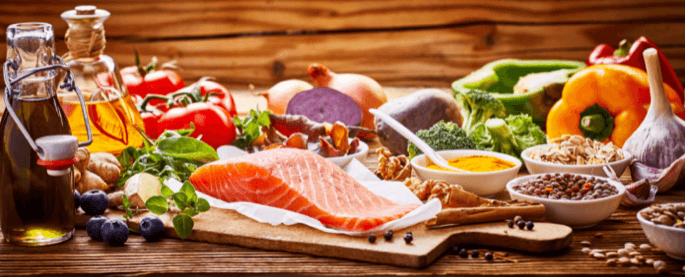
The world-famous Mediterranean diet is considered to be one of the most beneficial diets for your skin.
It is full of antioxidants to help repair skin damage and healthy fats to keep the elasticity of the skin.
The Diet is based on plenty of plant foods, such as fruits, vegetables, nuts, pulses, and whole grains, other vital components are fish, olive oil and small amounts of red wine. A limited amount of unprocessed meat, eggs, and dairy are allowed, and the diet is naturally low in added sugar, refined grains, and unhealthy processed foods.
A key feature is the healthy sources of fats from foods like fish, nuts, seeds, avocados, olive oil, and olives. At the same time avoiding foods containing unhealthy fats such as refined vegetable oils, processed meat, and other processed foods.
Many of the foods in a Mediterranean diet have anti-aging properties, that will both nourish and protect the skin.
Below is a list of the foods included in the diet:
Eat Plentiful Amounts:
Vegetables, fruit, pulses, nuts, seeds, whole grains, potatoes, herbs & spices, fish, seafood and extra virgin olive oil.
Eat In Moderation:
Poultry, dairy, eggs, red meat, and red wine.
Limit or Avoid:
Added sugar, sugary drinks, refined grains, refined vegetable oils, processed meat, and processed foods.
Caffeine – Coffee is far more popular with people living in the Mediterranean region than tea, Caffeine helps to protect against skin cancer because it prevents a protein that UV-damaged precancerous cells need to divide.
Extra Virgin Olive Oil:
The best-known ingredient in the Mediterranean diet is, of course, Olive oil, a staple part of the diet, giving healthy monounsaturated fats and thought to be one of the reasons to the far superior health of the Mediterranean people. Olive oil is a valuable source of a fatty acid called oleic acid, which has powerful anti-inflammatory effects. Inflammation is involved in both aging and many diseases, so reducing it has anti-aging benefits.
Extra virgin olive oil is high in antioxidants, giving further anti-inflammatory properties, as well as protecting against oxidative stress damage in the body. By choosing cold-pressed olive oil and eating some of it raw, on salads, for example, will ensure you receive the highest antioxidant dose.
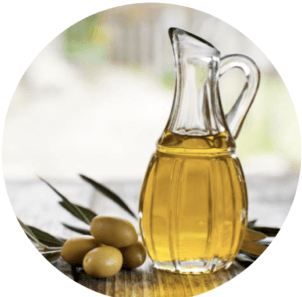
The consumption of Olive Oil is linked to many advantages, these include a healthier heart and reducing the risk of mental problems such as depression and Alzheimer’s.
Olive oil is also an excellent ingredient for homemade beauty products, such as hair and face masks and fantastic natural body oil for both adults and children. It is packed full with vitamin E and antioxidants and is incredibly nourishing and moisturizing for hair and skin.
Book your next Mediterranean break – EasyJet.com
Oily Fish:
Living near to the Mediterranean Sea, the inhabitants of this region are traditionally fish eaters. Fish, especially of the rich oily variety, is our number one dietary source of omega-3 fatty acids, which are vital for health, beauty, and anti-aging. They have powerful anti-inflammatory effects, protecting those parts of the body most affected by aging (your eyes, the brain, heart, joints, etc.), as well as being an excellent moisturizer and conditioner for the skin and hair.
Both fish and seafood are also a fantastic protein source and provide essential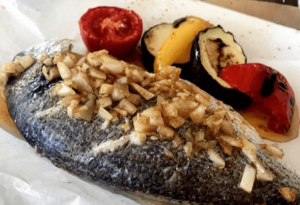 nutrients such as zinc and selenium. There is another less well-known anti-aging ‘star ’ to be found in ‘pink’ fish such as salmon, called astaxanthin. It is effective in reducing inflammation, boosting the immune system, diminishing wrinkles, improving skin elasticity and so improving your overall appearance.
nutrients such as zinc and selenium. There is another less well-known anti-aging ‘star ’ to be found in ‘pink’ fish such as salmon, called astaxanthin. It is effective in reducing inflammation, boosting the immune system, diminishing wrinkles, improving skin elasticity and so improving your overall appearance.
Plant Super-Foods:
Our Mediterranean neighbors have not only got the fruit and veg portions correct, but are also including an abundance of other plant super-foods in their daily diets, such as nuts, seeds, pulses, and whole grains. For example, nuts form an integral part of the diet and have both anti-inflammatory and antioxidant effects, which give them anti-aging powers. Regular consumption is linked to lower cholesterol, reduced diabetes risk, and lower body weight. Pulses and whole grains also regularly feature in Mediterranean cuisine and are just as advantageous for health.
Bread and Pasta:
Bread is always seen on the table in a Mediterranean kitchen as well as pasta, both are very popular but are eaten alongside plenty of lentils, beans and other whole grains such as barley, whole wheat berries, polenta, oats, and buckwheat.
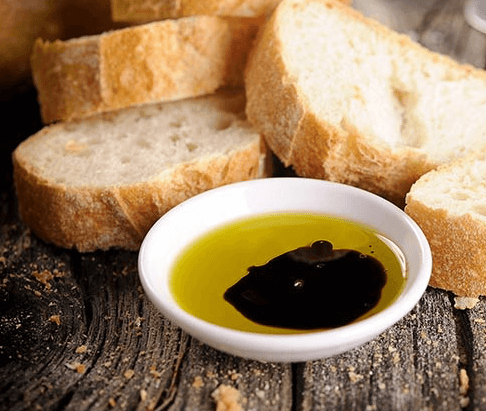
Bread and pasta have been unfairly labeled as ‘bad’ or ‘fattening’ foods in recent years. They are however a staple food in many healthy populations, including the Mediterranean region. Freshly baked whole wheat bread is a personal favorite of mine dipped in olive oil (instead of butter or margarine) add a touch of Balsamic Vinegar and black pepper, it’s delicious and it is actually very nutritious, so long as you are not allergic to wheat, gluten sensitivity or are coeliac it should not cause any issues if eaten in moderation and as part of a balanced diet.
Meat, Eggs, and Dairy:
Meat, eggs, and dairy are eaten in small quantities and in their most natural unprocessed forms. Fresh cheeses, of which many are naturally low in fat, such as ricotta, feta, and mozzarella are eaten in reasonable amounts and provide a great source of protein and calcium.
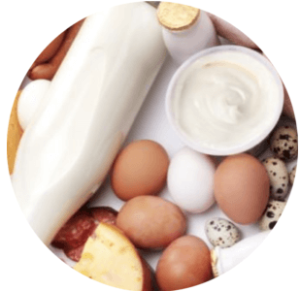
Sheep’s and goats dairy products are very popular, as well as yogurt, which is a natural source of probiotics for a healthy gut. Meat is far less processed and eaten maybe once or twice a week, not daily! A traditional Mediterranean diet will be low in processed foods, with meals being home-cooked and made from natural, fresh ingredients.
Moderation and Balance:
Meat, eggs, and dairy are eaten in small quantities and in their most natural unprocessed forms. Fresh cheeses, of which many are naturally low in fat, such as ricotta, feta, and mozzarella are eaten in reasonable amounts and provide a great source of protein and calcium.
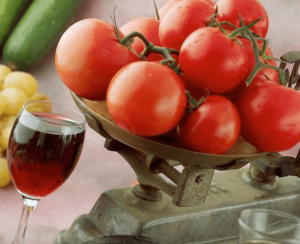
Sheep’s and goats dairy products are very popular, as well as yogurt, which is a natural source of probiotics for a healthy gut. Meat is far less processed and eaten maybe once or twice a week, not daily! A traditional Mediterranean diet will be low in processed foods, with meals being home-cooked and made from natural, fresh ingredients, and enjoyed with a glass of red wine.
Revitive ProHealth –
Relieve discomfort in the legs and feet
Click For More Details
General Skin Conditions:
Some common skin conditions can be affected by the food you eat:
Acne – A study on male acne patients who followed a low-glycemic diet had reduced acne in comparison to a group of men that ate a diet rich in carbohydrates.
Chocolate – this gets a bad report as it is seen as a cause of pimples when in reality acne might be from a high-sugar or high-carb diet, if you can’t resist it, try to eat dark chocolate, in moderation of course!
Rosacea – This can include facial redness and swelling, can be set off by overindulging in rich, spicy foods, excessive alcohol or even hot drinks.
Eczema – People who suffer from eczema get dry, itchy, and red patches on the skin. Dermatologists say foods that can aggravate eczema symptoms include milk, eggs, soy, and wheat, and excess sugar. The Mediterranean diet is very beneficial for people who suffer from Eczema.
Keep Your Skin Healthy:
Eat your colors for antioxidants, include some healthy fats and choose a variety of foods to get the nutrients required to keep your skin glowing not only in summer but all year long.

Eat a healthy, well-balanced diet; eating lots of fresh fruit and vegetables can help to stop the damage that leads to skin aging prematurely.
Many studies also suggest that a diet that contains a lot of sugar or other refined carbohydrates can speed up the aging process!
Excessive drinking of Alcohol dehydrates the skin, if you remove the moisture content from the skin in time, this will lead to wrinkles and signs of aging on the face, simply put, you are going to look older. Drink less alcohol, easy to say I know, but Alcohol is severe on the skin.
Allow your body and skin to enjoy the Benefits of Change:
Even people who now have signs of premature aging skin can benefit greatly from making lifestyle changes.
By changing your diet and bad habits, you will see and feel the benefit to your body and skin.
If you smoke, stop! People who do manage to quit smoking often notice that their skin looks healthier in time. Smoking will dramatically speed up how quickly your skin ages, it also causes wrinkles and a dull, sallow complexion.
By using a high factor sunscreen you are protecting your skin from the sun, and you give it an opportunity to repair some of the damage that may have already occurred.
Apply a facial moisturizer both day and night. Moisturizer traps water in our skin, giving it a more youthful appearance.
The Mediterranean Lifestyle:

The Mediterranean diet for health benefits and maintaining healthy skin is far more about boosting your overall sense of well-being and learning how to make healthier food choices without giving up on taste and flavor. What’s not to love about really easy to find and use skin foods that give you an all-around healthy glow, inside and out?
If signs of aging skin bother you, you may want to see a dermatologist. New treatments and less-invasive procedures for smoothing wrinkles, tightening skin, and improving one’s complexion are giving many people younger-looking skin.
How much do you enjoy Mediterranean style food? What food do you find helps your skin look and feel better? Please leave any comments or questions below, and I will be happy to discuss them with you.
jo@yourskincarehelp.com

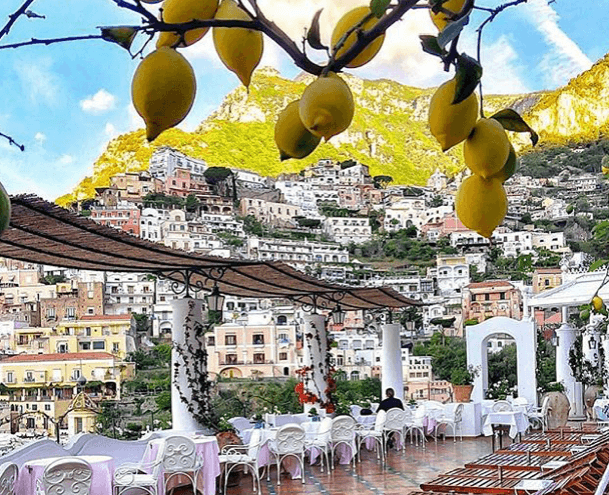
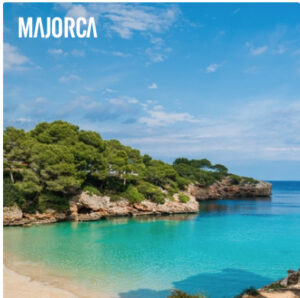
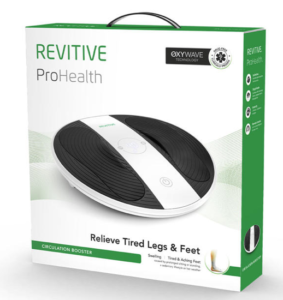
Hey Jo, this has been very a real eye-opener! Especially how much a Mediterranean diet could help with so many conditions and reduce inflammation of arthritis. Also, I didn’t realise caffeine in coffee could help prevent a protein that cells need to divide! So all in all many good reasons to think about this diet. Wishing you a Happy New year 2019.
Thank you for the elaborate article about mediterranean diet, I come from there and know exactly what you are talking about, when I go shopping I feel very sad how expensive olive oil is, but still get it, as you mentioned it is kind of a main ingredient in our cooked and cold meals, but still I miss a lot of vegetables and fruits from back home, the other thing is meat in general is grass feed and free range, which makes it a lot healthier and much more tasty.
Better skin is definitely one aspect of better and health, also heart disease is much lower in the Mediterranean, since we consume lots of antioxidants in the form of olive oil, nuts and green leaves.
Amer
I found your post is very enlightening. I’ve heard about the advantages of Mediterranean diet but not so in-depth as this. I was surprised to also read about the positive benefit of Coffee. I have to say that having read your post it gives me a great incentive to stop eating so much sugar and sweet products.
You mentioned fish, would you say there is a big difference between wild fish and farmed fish, or does it not make a difference?
I am Italian and love everything about the Mediterranean Diet. I love your post, and it is about time someone reminds people of how good the Mediterranean Diet is. I am a vegan, and I do not eat any meat, but that is my personal choice, I do love vegetables, nuts, olive oil, fruits, bread and pasta, so I really want to say thank you so much for sharing this beautiful and useful post, and I hope many more people will take your advice.
Amazing complete information, v.good, I enjoyed reading especially because I am there, and yes we have the most important jewellery – OLIVE OIL, I hope everyone understand its value and benefits, and start follow your advice, and off course all the other important points that you mentioned also..
Thank you.
Abla Khalil
please visit my site: https://lifestyleak.wordpress.com/
Hi, yes Olive Oil really is a ‘jewel’ it has so many healthy benefits, and when combined with the wonderful choice of food from the Mediterranean region it makes for the perfect combination 🙂
I found this read very educational, I added Olive oil to my diet at the beginning of the year and the difference to my hair and skin has been remarkable, and the stiffness that I had in my knees, especially over the winter months seems to be a lot less than before.. I have renamed it “sunshine in a bottle” ?